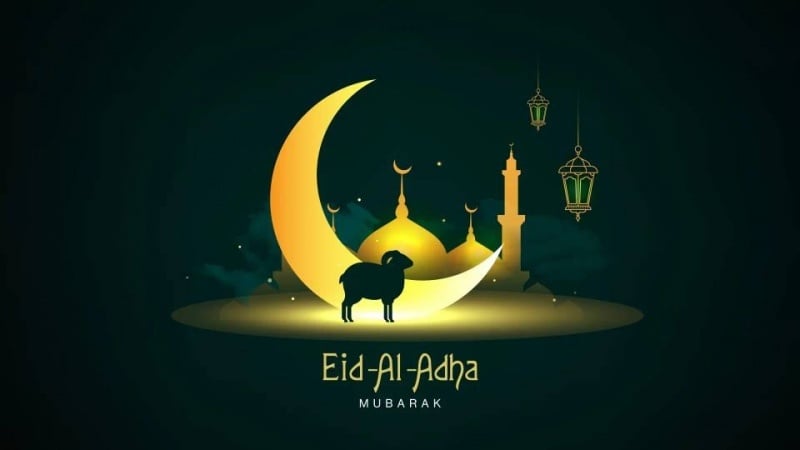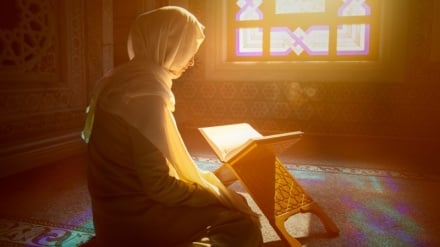Eid al-Adha time for expurgating heart, society; symbol of salvation from worldly attachment
Pars Today- According to a researcher of hadith, Imam Reza's message for the day of Eid al-Adha is beyond superficial rituals. This day is an invitation to moral rebuilding of the individual and society.
According to Pars Today, Hojjat-ol-Islam Javad Afshari, Iranian researcher of hadith and university professor, in an interview with Mehr news agency, pointed to the moral and social aspects of Eid al-Adha in the teachings of Imam Reza (Peace upon him) and said, "According to the Imam, Eid al-Adha is the day of expurgation. Imam Reza (Peace upon him) says, 'The day of al-Adha is the day of purity, pardoning and giving.' It is the day when the hearts should be cleansed from spite, jealousy and enmity to lead the society to empathy and unity through pardoning and giving.'"
Afshari added, "Imam Reza (Peace upon him) showed these teachings in his practical behavior, too. It has been narrated that he would wear his best clothes on Eid al-Adha, would face people kindly and would devote much of the slaughtered meat for the poor and the orphan. He said, 'Charity on this day is better than other days.'"
This researcher also said, "If our society is facing moral problems and social gaps, returning to the teachings of Imam Reza on Eid al-Adha can be constructive. Eid al-Adha is the day of reconstruction of human relations, elimination of spite and exercising giving and self-sacrifice."
Sacrifice symbol of salvation from attachment
Mahboubeh Saffari, professor of the history of Islam, in an interview with Mehr news agency, embarked on the philosophy of sacrifice in the view of Imam Reza and said, "Eid al-Adha reminds the greatest human test; a test that Prophet Abraham (Peace upon him) passed successfully and made his son ready for sacrifice in the way of God. Imam Reza (Peace upon him), retelling this event, stresses human salvation from material and emotional attachments."
Saffari added, "It has been narrated in the books of history and narration that Imam Reza considered sacrifice as an exercise of absolute servitude and submission to God's will. He believed that the greatest obstacle on the way of human perfection and salvation are the worldly attachments. Eid al-Adha is an opportunity for cutting off these attachments and testing the scale of man's faith and sincerity."
She also noted, "Imam Reza says in a hadith, 'Stick to sacrifice as it is the practice of Abraham and Prophet of Islam and a sign of submission to God.' This statement of the Imam indicates that the philosophy of Eid al-Adha is not limited to slaughtering an animal, but contains readiness, submission and sincerity."
Ms. Saffari continued, "Imam Reza (Peace upon him) put special emphasis on the bond between Eid al-Adha and refining hearts. He said that a faithful should sacrifice part of his worldly attachments and selfishness with every slaughtering and prepare the heart for receiving the divine light."
This researcher of the history of Islam, added, "In the behavior of the Ahl al-Bayt (Peace upon them) Eid al-Adha is always an opportunity for teaching practical and social spirituality to the followers. Imam Reza (Peace upon him) used to recommend his disciples to pray on this day not just for themselves but for others and appeal to God to grant goodness for all."
She also said, "Imam Reza (Peace upon him) would invite his followers on Eid al-Adha to consort with the needy, support the orphan and sympathize with the destitute. He would stress that sacrificing without heeding social and human issues will have no meaning and effect."
Saffari concluded, "If the society is able today to revive the multilayered messages of Eid al-Adha in Imam Reza's view, we can be hopeful that many of the moral crises, excessive individualism and social gaps will end and will be replaced with spirituality and empathy."
RM/BK



